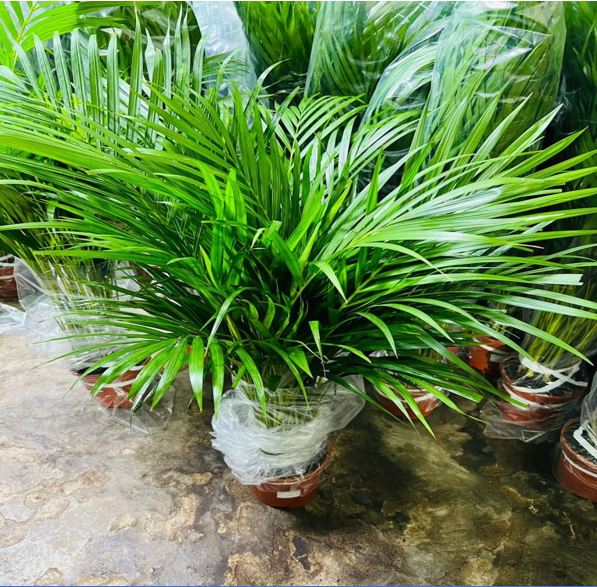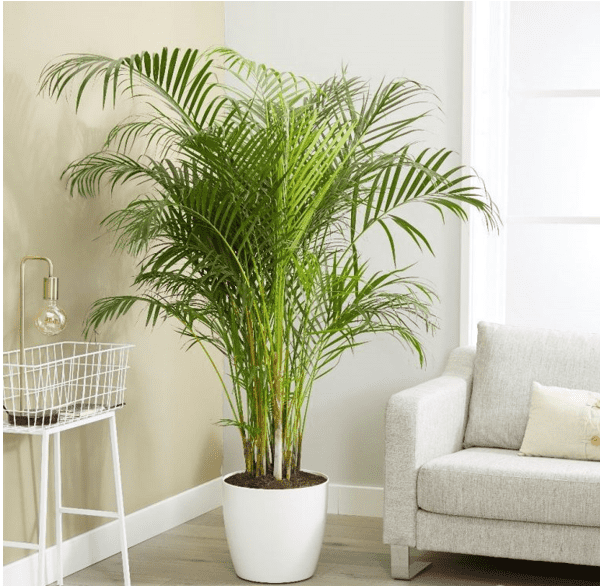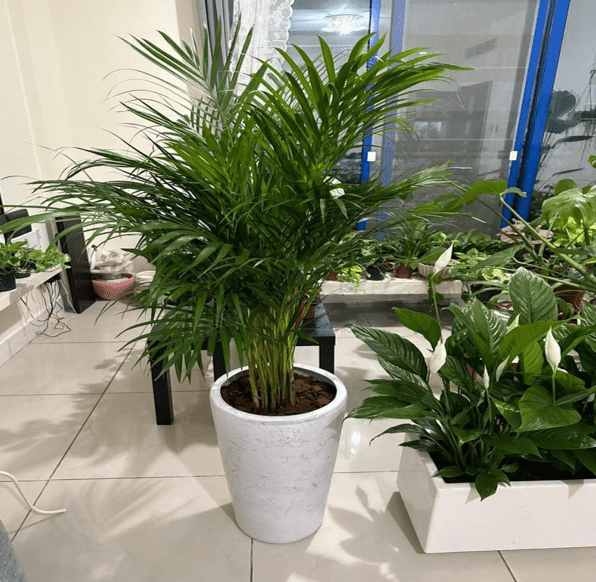The Areca Palm, also known as Dypsis lutescens or the Butterfly Palm, is a popular indoor plant known for its feathery, arching fronds and graceful appearance. It’s a great choice for adding a tropical touch to indoor spaces. Here’s a comprehensive overview of the Areca Palm:
### Appearance:
– **Foliage:** The Areca Palm features long, feathery fronds that are arranged in a graceful, arching pattern. The leaves are a vibrant green and can give a lush, tropical feel to any room.
– **Size:** Indoors, it typically grows to about 4-7 feet tall. In ideal conditions, it can reach its maximum height, but it generally grows more slowly.
– **Growth Habit:** It has a clumping growth habit with multiple stems emerging from the base. The stems are slender and covered in leaf scars.
### Care Requirements:
– **Light:** Prefers bright, indirect light. It can tolerate lower light conditions but may grow more slowly and become leggy. Avoid direct sunlight, which can scorch the leaves.
– **Water:** Keep the soil consistently moist but not waterlogged. Water when the top inch or so of soil is dry. It’s important to avoid letting the plant sit in standing water, as this can lead to root rot.
– **Soil:** Use a well-draining potting mix. A peat-based mix with added perlite or sand works well to provide good aeration and drainage.
– **Humidity:** The Areca Palm thrives in high humidity. If your home is dry, consider using a humidity tray, a room humidifier, or regularly misting the plant to increase moisture levels.
– **Temperature:** Prefers temperatures between 65-75°F (18-24°C). Protect it from cold drafts and temperatures below 50°F (10°C).
### Maintenance:
– **Pruning:** Remove any yellow or dead fronds to keep the plant looking its best. You can also trim back any overly long or unruly fronds if needed.
– **Feeding:** Feed with a balanced, water-soluble fertilizer every 2-3 months during the growing season (spring and summer). Reduce feeding in the fall and winter when growth slows.
– **Repotting:** Repot every 2-3 years or when the plant becomes root-bound. Choose a pot that is 1-2 inches larger in diameter than the current one and ensure it has good drainage.
### Potential Problems:
– **Pests:** Common pests include spider mites, mealybugs, and scale insects. Regularly inspect the plant and treat any infestations promptly.
– **Leaf Issues:**
– **Yellowing Leaves:** Can be a sign of overwatering, poor drainage, or low light. Ensure proper watering practices and adequate light conditions.
– **Brown Leaf Tips:** Often due to low humidity, over-fertilization, or fluoride sensitivity. Increasing humidity and using distilled or filtered water can help alleviate this issue.
– **Leggy Growth:** If the plant becomes leggy or sparse, it might need more light. Moving it to a brighter location can help improve its appearance.
### Additional Tips:
– **Air Purification:** The Areca Palm is known for its air-purifying qualities. It can help remove toxins such as formaldehyde from indoor air.
– **Toxicity:** The Areca Palm is generally non-toxic to pets and humans, making it a safe choice for homes with animals or small children.
Overall, the Areca Palm is a visually appealing, low-maintenance plant that can bring a touch of the tropics indoors. With its graceful fronds and adaptable nature, it’s an excellent choice for adding a bit of greenery to any space.



Reviews
There are no reviews yet.